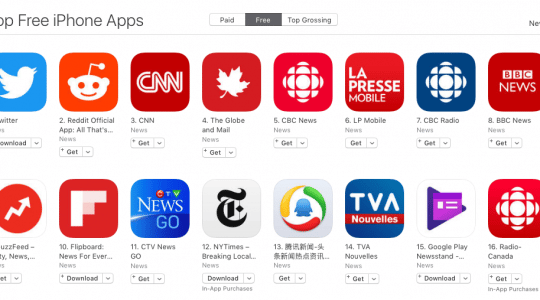 Mobile gaming is a tough market. It’s saturated by large companies with massive war chests of cash competing for distribution against other smaller companies with tighter budgets. Many companies can’t afford to compete across every channel with the big players. This puts smaller companies in a position where they really need to focus and minimize distractions. But the mobile gaming landscape has changed. As Head of Strategic Sales and Mobile Gaming at TUNE, I recently attended the Mobile Games Forum in Seattle on October 18–19. Here are the key takeaways for how to score big in the mobile gaming market.
Mobile gaming is a tough market. It’s saturated by large companies with massive war chests of cash competing for distribution against other smaller companies with tighter budgets. Many companies can’t afford to compete across every channel with the big players. This puts smaller companies in a position where they really need to focus and minimize distractions. But the mobile gaming landscape has changed. As Head of Strategic Sales and Mobile Gaming at TUNE, I recently attended the Mobile Games Forum in Seattle on October 18–19. Here are the key takeaways for how to score big in the mobile gaming market.
Take a gamble
This is the first year at Mobile Games Forum, or similar shows, when I didn’t hear a consistent spew of strategy being, “Test everything! You need to launch your game everywhere.” The methodology for launching a successful gaming app used to be to appear on every platform, launch new games constantly, and focus on growing everywhere. Instead, there was a resounding notion that gaming companies should only launch 1–2 titles per year, instead of monthly, and put all their resources into those one or two games.
[bctt tweet=”Instead of releasing games monthly, companies should launch 1–2 a year.” username=”tune”]This strategy leads to more risk because companies will be putting their eggs into fewer baskets. On the flip side, it forces a much smarter strategy because there’s a narrower focus and they won’t be thinly spread over 12 games. Today, gaming companies are doubling down on determining the games, audiences, tools, and geos that produce the best results. There is decreased interest in extreme experimenting. With this shift, there’s a renewed sense that when it comes to marketing, it’s not just all about installs anymore — there’s an increasing focus on reengagement of existing users and really knowing who these people are and what they’re most interested in to keep them coming back to the game. One way to focus on reengagement is with building a community around your game.
Create a gaming community
Gaming developers and marketers who are seeking to simply provide a boxed package — a mobile app and nothing else — are missing out on a huge opportunity. The idea of a gaming communities isn’t new, but only a few gaming apps are doing it successfully. Community management in games is underserved and it remains a huge opportunity for gaming companies to engage with their most devoted players.
By building a gaming community, you are inviting users to be part of something bigger than just playing a game. Gaming communities provide a place for users to socialize and spotlight pro players. It can also be an excellent resource for app developers to receive feedback from users on what they like and don’t like, how to improve future versions, which features they like more than expected.
Invest in a community manager
The community manager is the connection between the gaming community and the publisher and developers. The role of a community manager is to manage the play community, communicate user feedback to developers, communicate new functions to the user, and so much more.
It may seem fun and easy, but the role of the community manager shouldn’t be taken lightly, under-appreciated or underpaid. It requires thick skin, a level head, and a lot of empathy. PC Gamer’s article from community managers shows the risk of daily exposure to a negative gaming community. When something goes wrong in the game, like bad server code, the community manager is the one to take the heat. And users can oftentimes be unforgiving and quick to point fingers. But community managers come to their roles because they see the value in connecting the community and building relationships with the players to better their experience and the game.
Ready to hire a community manager? Here are skills to put on the job description:
- Communication skills and a high EQ. Community managers do a lot of communication with developers and users via email, forums, chats, and other formats. They will be the voice of the company — make sure they understand the level of professionalism your company requires and the brand voice, whether it’s more informal, witty, fun, or matter-of-fact. They’ll have to be able to approach heated issues with a level head and maturity in all cases. Give them a situational assignment to test their strategy, grammar and sentence construction skills, and communication method.
- A passion for the game. This person is going to be talking about the game every day to people who are passionate enough about it to invest time in communicating (or complaining) to others about it. The community manager needs to be equally, if not more, passionate for gaming and the game they are managing. They must have a deep knowledge of the game to be able to communicate effortlessly using the verbiage of the gaming community.
- Conflict resolution skills. Players can get really passionate (read upset) when mistakes happen or something breaks. It’s normal for things to do wrong and that’s why it’s important for the community manager to feel comfortable diffusing uncomfortable situations when they arise. They’ll also have to educate the community on appropriate game standards and the code of conduct.
By being a calm, reliable, and responsive voice, the community manager will gain trust and reliability from the community.
Keep up with trends
Mobile strategy is difficult to master and savvy mobile game app marketers know the possibilities of a successful app. Stay on top of the latest trends by watching the free webinar on “Pro tips for conquering game app marketing.”
Like this article? Sign up for our blog digest emails.
Author
Becky is the Senior Content Marketing Manager at TUNE. Before TUNE, she handled content strategy and marketing communications at several tech startups in the Bay Area. Becky received her bachelor's degree in English from Wake Forest University. After a decade in San Francisco and Seattle, she has returned home to Charleston, SC, where you can find her strolling through Hampton Park with her pup and enjoying the simple things in life.




Leave a Reply
You must be logged in to post a comment.